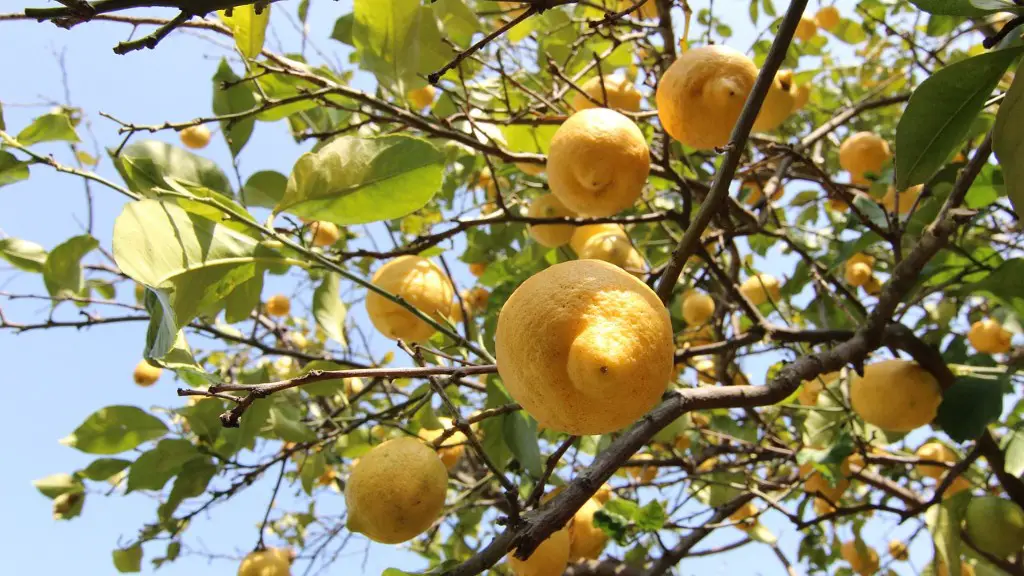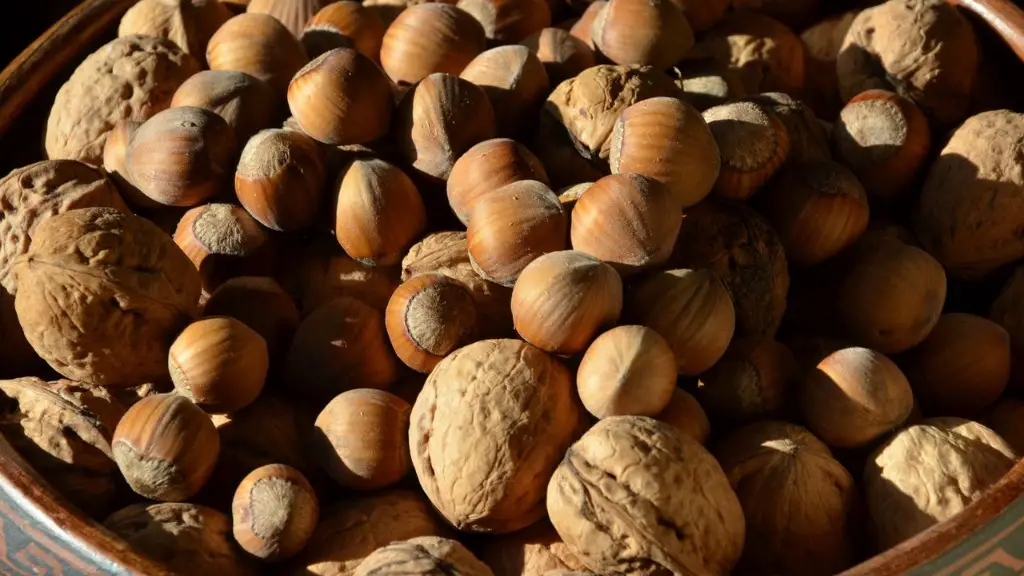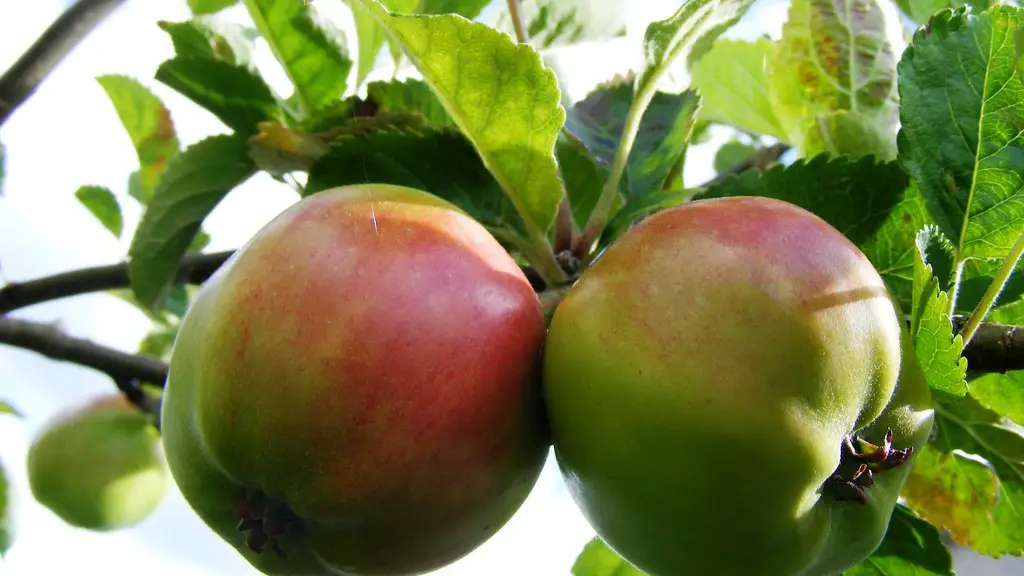The question of whether you can use coffee grounds on your lemon tree is a good one. On the surface, it seems innocuous and harmless, but even small details can have a large impact on the health of plants. Therefore, before taking any drastic action, it is important to first understand the potential consequences of such an action and the wider implications of doing so.
Coffee grounds do contain beneficial nutrients and organic matter that can act as a slow-release fertilizer for plants. Additionally, they can offer surprisingly good aeration and aid in soil drainage. As a result, when used in moderation, they can provide a positive benefit to the lemon tree. That being said, the water-soluble components of the grounds can also be too concentrated for the delicate roots of the tree and can become toxic if too much is applied.
Furthermore, adding too many coffee grounds to the soil can cause the pH of the soil to become more acidic, which can be harmful to the lemon tree. The ideal pH for a healthy lemon tree is 6 to 7, and any value that is too far out of that range can decrease the tree’s hardiness. As such, it is important to be mindful of this before making any decisions.
Therefore, the answer to the question of whether you can use coffee grounds on your lemon tree is a tentative ‘yes’, but with some caveats. Firstly, it should be understood that the grounds should only be added in moderation. Furthermore, regular soil tests should be conducted in order to ensure that the pH of the soil remains steady and within an acceptable range. Lastly, while coffee grounds can provide necessary nutrients and organic matter to the tree, it is recommended to use a balanced fertilizer in conjunction with the grounds in order to provide the tree with all the elements it needs to grow properly.
Benefits of Using Coffee Grounds
Although there are several potential risks associated with using coffee grounds on your lemon tree, there are also a plethora of benefits as well. By far the largest advantage is the contribution of beneficial nutrients to the soil. Several of these elements are found in commercial fertilizers, however, coffee grounds are much more cost effective, making them a great option for those on a tight budget.
In addition, coffee grounds can improve soil structure by increasing its ability to absorb water and providing better aeration. Furthermore, they can act as a natural weed inhibitor, as the grounds will make the soil less hospitable for any unwanted plants that may arise. All in all, when used with caution, coffee grounds can make for an ideal amendment for enriching the soil of a lemon tree.
When adding coffee grounds to your lemon tree soil, it is important to be mindful of the potential risks. As mentioned above, the grounds must be used sparingly and should not be the sole source of nutrition for the tree. Furthermore, any changes in soil composition should be monitored and soil tests should be conducted on a regular basis. Assuming the coffee grounds are used properly, however, the lemon tree should have a much higher chance of remaining healthy and flourishing.
How to Apply Coffee Grounds
The process for applying coffee grounds to the soil of your lemon tree is fairly straightforward. Start by making sure that the tree is in a healthy state, as applying coffee grounds to a tree in poor condition can lead to further problems. After that, spread the grounds around the base of the tree in a thin, even layer. It is important to only use a small amount, as the goal is simply to provide a light coating of nutrients to the soil.
When adding coffee grounds, it is also important to use some type of maintenance tool to aerate the soil. This can be done with a shovel, garden fork, or any other implement that can be used to disrupt the soil. After the grounds have been spread, the soil should then be stirred, which should mix the grounds into the soil and provide the necessary aeration.
Finally, the tree should be watered, as this will help ensure that the grounds are properly absorbed into the soil. Provided that all of these steps are followed, the soil should begin to see the positive effects of the grounds within a short period of time. That being said, whether the tree will, in fact, benefit from the addition is ultimately dependent on the soil quality, the climate, and other related factors.
The Impact on Insects and Pests
In addition to providing some key nutrients, coffee grounds can also aid in pest control and insect prevention. By attracting earthworms, the grounds can help promote aeration and nutrient cycling in the soil. On the other hand, if given in too large of quantities, the grounds can also inhibit the growth of beneficial fungal organisms, which can lead to an unhealthy plant.
Furthermore, the grounds can also repel nuisance insects such as aphids and mosquitoes, as the acidity of the grounds can deter certain pests from infesting the tree. This can be a helpful deterrent when trying to keep your lemon tree healthy. That being said, the grounds should still be used carefully and should never be relied upon as the sole pest control measure.
Ultimately, determining whether or not coffee grounds are a viable option for your lemon tree is a decision that should be made with consideration for multiple factors. On one hand, the grounds can provide a great source of nutrients, whilst also helping to deter certain pests. On the other, however, excessive use can lead to an imbalanced pH and can confuse the plant’s nutrient uptake. As such, it is best to tread with caution and read up on the potential impacts before making any decisions.
Environmental Impact
As with most activities and products, it is important to consider the environmental impacts as well. For coffee grounds, the potential environmental effects will depend on the amount being used and the overall conditions of the site. In most cases, coffee grounds can provide a positive environmental benefit, as they are a renewable resource and are essentially composed of recycled nutrients.
In addition, coffee grounds can be used to improve the soil structure and nutrient content of a degraded area, which can help increase its fertility and improve its water infiltration rate. This can be beneficial for organisms living in the soil and can also help reduce runoff and erosion. Furthermore, when composted, coffee grounds can become an even greater asset to the land, as the resulting compost will be filled with important minerals and organic matter.
That being said, it is important to remember that too much of anything can lead to problems. In the case of coffee grounds, an excessive amount can lead to an improper pH balance and can inhibit the growth of beneficial organisms. As a result, it is important to use only the amount of grounds necessary to provide benefits to the soil, while still being mindful of the potential environmental impacts.
Re-purposing Grounds
In addition to the potential benefits that can be had by adding coffee grounds to your lemon tree soil, there are also a number of other uses for them as well. For example, the grounds can be used to help repel garden slugs, which can be a nuisance in some regions. Additionally, they can be used to make an all-natural exfoliating scrub and can even be used to make a pleasant-smelling potpourri.
In addition, the grounds can also be used for food preparation, as the grounds can act as a flavor enhancer for some dishes. As far as lemon trees are concerned, some may even find that putting a small amount of the grounds in a cup of water, and then spraying that on the tree occasionally, can help bring out some of its essential oils. This can add an even more pleasant smell and can also help to keep the tree vibrant.
All in all, there are many creative ways to repurpose coffee grounds, in addition to the potential benefit it can give to a lemon tree. It is important to remember, however, that those who wish to use the grounds in this way should do so only with moderation and an understanding of the potential consequences of their actions. If done properly, the grounds can have multiple positive impacts.



